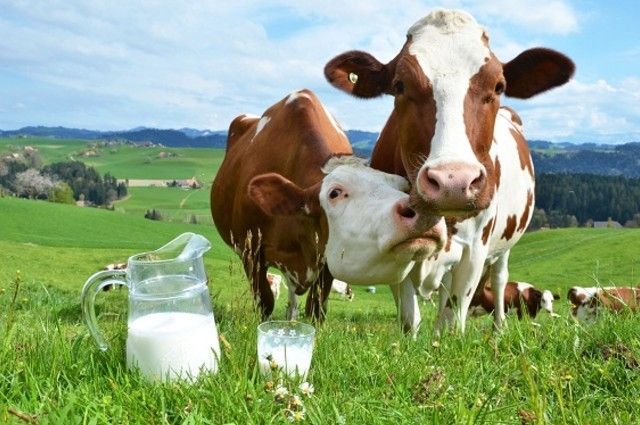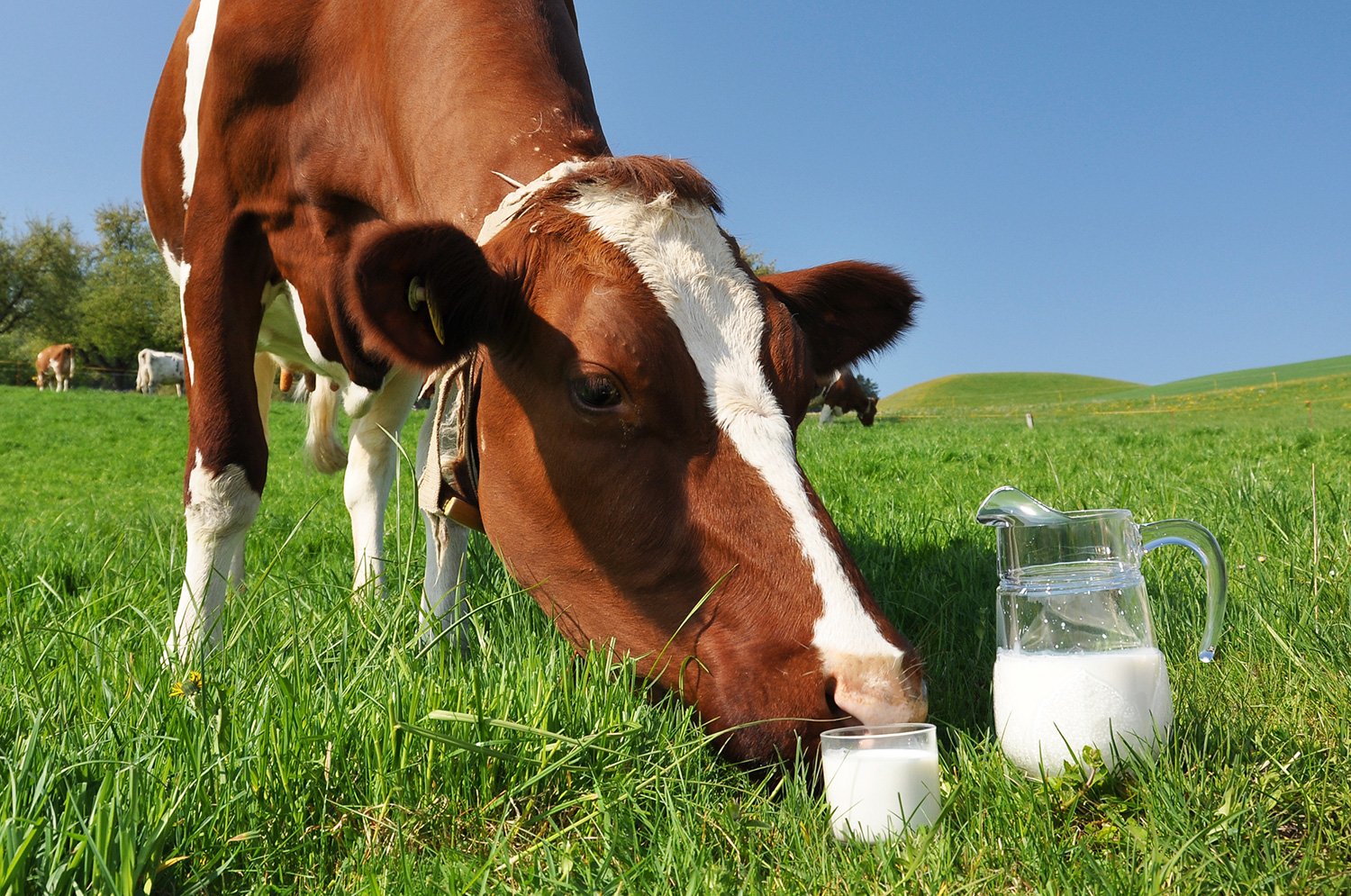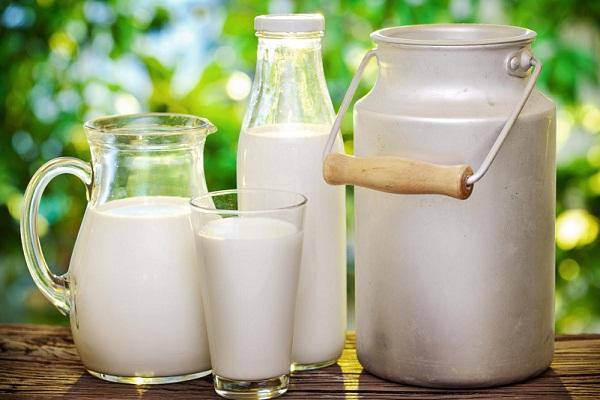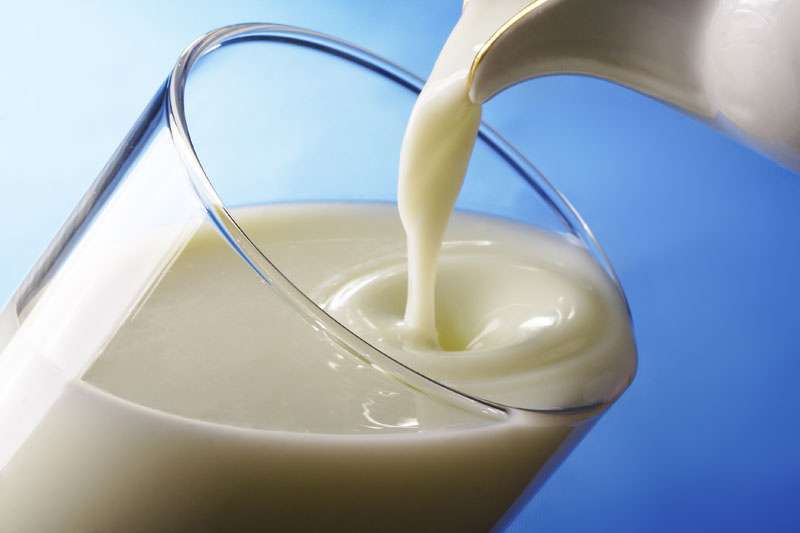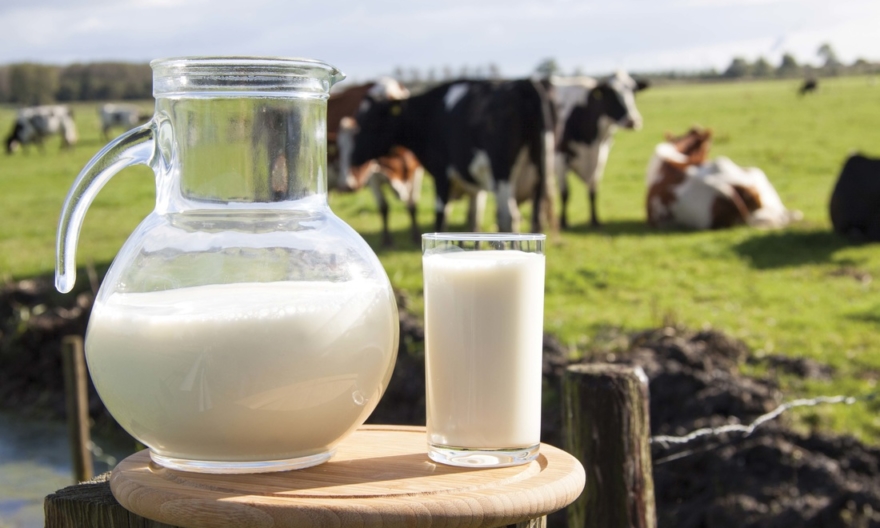Content:
Almost all parents give their children cow's milk, because, as you know, this product contains a huge amount of nutrients and vitamins necessary for the proper development of the baby's health. The store-bought dairy product is sterilized, therefore, during processing, the bulk of the beneficial qualities are nullified. For good kidney, heart and liver function, you need to consume half a liter of milk every day. Where do the muscles of a person get strength and energy? Nutrition goes through protein, which is part of the valuable liquid. From it, immunoglobulins are formed that fight various viruses.
You should not exclude milk from your diet also because it lowers the acidity of gastric juice, it improves the functioning of the digestive organs in case of gastritis, ulcers and other inflammatory processes. For breakfast, milk porridge is indispensable for the body. If you monitor the conditions of detention, a cow can give about 20 liters of milk per day.
Why milk smells like a cow
In short, most often the problem lies in non-observance of simple rules of milking technology, sometimes in the state of health of the animal itself. This fact requires serious consideration, since sellers of homemade milk assure customers that they are used to city life, to packaged containers containing a liquid product, and natural milk should have "echoes" of a cow in taste and smell. But this is not the case!
Everyone from school knows how a cow gives milk. But there are also some nuances here. Before each milking, the udder of a cow should be washed with warm water; the cow should be cleaned regularly. Otherwise, bacteria will get into the valuable product and it will not be stored for a long time. There are usually no problems when eating fresh food. Silage and haylage have a specific aroma, so it cannot be eliminated. A dry and warm barn will not only provide cattle with comfort, but will also contribute to the quality of taste. Dirt and waste in the room should be removed.
The benefits and harms of fresh milk
The temperature of fresh milk of a cow reaches 30 ° C, and the calorie content is 70 kcal. The main value is precisely in uncooled milk, from which steam emanates, if it stands uncovered for some time, its usefulness sharply decreases (several hours may be enough). It contains enough saturated and unsaturated fats, their amount in the product is 4 g. Since milk is a low-calorie food, overweight people can easily include it in their diet. In addition, it improves vision and reduces the likelihood of developing rickets and osteoporosis. Useful properties include strengthening immunity, as well as regulating the work of the nervous system.
Individual intolerance to this product can trigger seizures. To reduce the risks of undesirable health effects, breeders recommend boiling fresh milk before drinking and waiting until it cools down.
What is whole cow's milk
The product can be subjected to various treatments, which, in fact, change its composition.Whole cow's milk does not undergo any processing, therefore it is called raw. The only thing is that to clean it, they filter it, because during milking, small debris can get into the liquid: straws, hairs from the skin of a cow. Then it can be diluted, passed through a separator to separate the cream.
The beneficial qualities of such milk include the fact that it helps to normalize sleep. To "prepare" the body for rest, experts recommend drinking 1 glass of warm milk with 1 teaspoon of honey 1 hour before bedtime.
Also, such a product is a diuretic, therefore it removes harmful substances from the body. With regular consumption of whole cow's milk, metabolism is restored. Useful properties were also noted in cosmetology, since milk with natural ingredients in its composition helps to moisturize and reduce inflammatory processes on human skin.
People with lactose intolerance should be wary of this type of product. According to statistics, about 15% of the world's population suffers from this problem. Due to the fact that milk is considered a strong allergen, you need to monitor the body's response to its use. And if there is one, then you need to remove it from the diet. However, allergy sufferers not only can, but should also include fermented milk products obtained during the processing of whole milk in their food, but within reasonable limits.
How much cholesterol is in cow's milk
When answering this question, the cholesterol level in milk is determined in relation to the proportionality of fat content. So, for example, in a less fatty product (1%) there is 3.2 mg of this substance, in a 2% one - 10 mg, 3% fat equals 15 mg, and in 6% - 23 mg of cholesterol. If a person has a high level of lipids in the blood, then milk from a cow should be consumed in small doses or completely excluded from the diet. If there is no liquid product with a lower fat content, then you can simply dilute it with water.
Why does a cow's milk quickly turn sour
The most common explanation lies in the storage temperature of cow's milk. The optimal conditions for the reproduction of bacteria in a fermented milk environment is a temperature of 25-30 ° C. However, even under normal conditions of stay of the product, milk sometimes begins to sour and acquires an unpleasant shade and smell. There are several explanations for this. If the product, placed in the refrigerator, gives a sediment, then this may indicate the presence of pathogens that emit toxic substances. This can happen due to inflammatory processes in the udder. During milking, bacteria enter the milk, which leads to early fermentation of the product. In such a situation, you need to resort to treating the cow using antibiotics. And during this period it is better to refuse taking milk from this animal.
A cow's disease such as a follicular cyst contributes to the rapid clotting of milk, which becomes several times less. If this is observed, you need to immediately start treating the cow.
In the first months of milking, a cow may be diagnosed with ketosis. This also explains why a cow's milk quickly turns sour. The disease appears as a result of poor-quality feeding, which is why acetic acid and acetone accumulate in large quantities in the body, which leads to improper metabolism. As a result, the product deteriorates quickly, albeit fresh.
To determine the true essence of the problem, it is worth paying attention to how correctly the milking took place (if milk remains in the udder, this negatively affects the health of the animal), the age of the cow, its diet, the weather on the pasture, the hygiene of the stable and sanitary standards during milking time.
Why milk from a domestic cow does not turn sour
The main point is the correct feeding of cattle, or rather, overfeeding it with protein food. If you do not observe the correct proportions of sugar and protein in food, the cow's milk will sour for a very long time. This problem can also be observed when feeding an animal with forage cabbage, bagasse, plants that are sour in taste. As a result of improper nutrition, metabolism is disturbed, which makes it difficult to sour milk. The accumulation of ketone cells occurs, and this is dangerous, since it can cause poisoning due to the decay of proteins and the destruction of fats, processes that occur before the souring stage. At the same time, the taste becomes rancid. To solve the problem, you can resort to reducing oil cake in the diet, and instead of alfalfa hay it is better to use meadow hay. You can also add a little baking soda to the feed, as this substance tends to ferment the milk.
Dishes containing milk are also important. For this purpose, it is best to use glass or ceramic containers. Galvanized and copper containers are strictly prohibited. It is best to use a tightly closed lid to prevent air from entering. Washing the can properly can also fix the problem. So, for example, it is better to rinse immediately with warm water. If at the beginning in the cold, and then in the warm, then the milk will sour longer.
Why drink homemade cow's milk every day? It is considered an indispensable food product not only for young children, but also for adults, as it has a full range of micronutrients and macronutrients. The vitamins in cow's milk help to strengthen the immune system, improve the functioning of the gastrointestinal tract, and calm the nervous system. In order to choose the best product, breeders recommend paying attention to the health of the cattle, as well as how clean, warm and dry the premises are, and whether sanitary standards are observed during milking. If all this is provided for the cow, she will give the most delicious milk!
